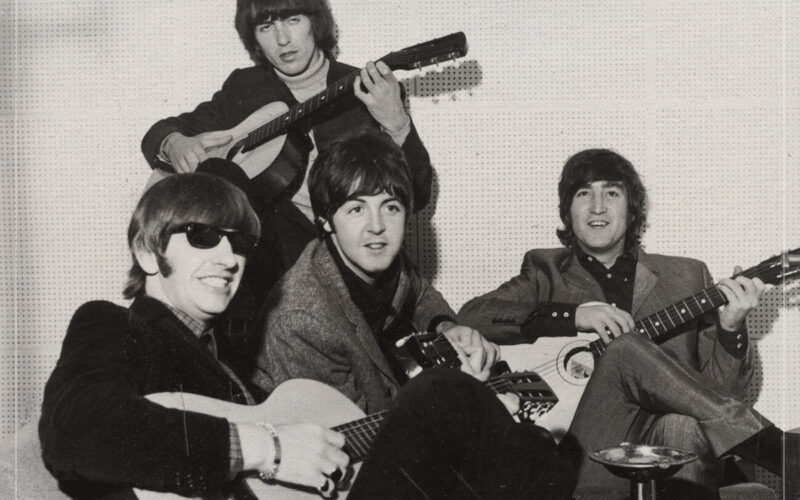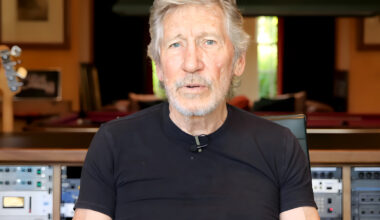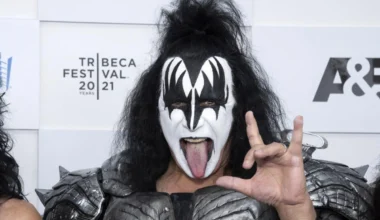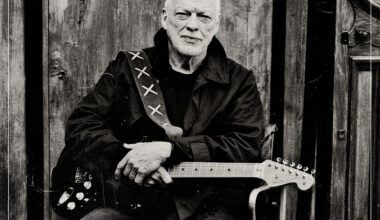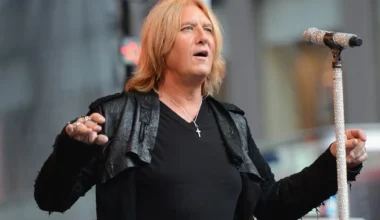It’s often thought that Rubber Soul stands as the pivotal record in The Beatles‘ wieldy oeuvre, the transitional LP that marks the end of Beatlemania and the strident leap forward into their expansive pop experiments, setting the stage for their live cessation and committal to a purely studio project.
Yet an infatuation with Bob Dylan’s mature songcraft and chance encounter with marijuana and LSD had already opened the Fab Four’s minds to new territory away from ‘She Loves You’ only two short years earlier.
A subtle fatigue with stardom begins to creak all over Help!. Released in August 1965, its title track leaps out of the speakers without a moment’s notice. John Lennon desperately clamouring for some vestige of sanity and a sympathetic ear to the dizzying touring schedules and bewildering din of screaming fans during the peak of their fame: “My independence seems to vanish in the haze”.
Even in the namesake, big-budget Technicolor feature Help! was soundtracking, The Beatles seem less natural in their skins than they did on A Hard Day’s Night‘s swinging caper. Indeed, a large source of their listless performances and waning presence throughout their second motion picture was down to a bored Beatles smoking grass most days to get through the shoot.
But it’s the music where they still shone. Several of its acoustic numbers could easily sit snugly on Rubber Soul‘s tracklist, ‘You’ve Got to Hide Your Love Away’ and ‘It’s Only Love’ seeing Lennon reach for a deeper and more personal songwriting than was yet seen. While Paul McCartney already had cuts the likes of ‘PS I Love You’ and ‘And I Love Her’ in the bag, his immortal ‘Yesterday’ would reach hymn-like status and would eventually stand as the most covered song in recorded history.
They still could craft God-given pop blitzes too, ‘Help!’, ‘Ticket to Ride’ and ‘You’re Going to Lose That Girl’ all crackling with that unmistakable Lennon-McCartney hook.
It’s the covers that had become seriously old hat by this point. While an essential feature of The Beatles’ early repertoires and an endearing glimpse into the American artists and songbook they cut their teeth on, the Fab Four’s own work was far superior in quality since even With the Beatles. Larry Williams’ ‘Dizzy Miss Lizzy’ closes Help! after the contemplative ‘Yesterday’, which sags the record somewhat with a superfluous finale, but can be charitably viewed as a light-hearted coda to round the LP off.
It’s ‘Act Naturally’ which baffles with its inclusion. Opening side two, the band in their infinite wisdom thought to cover Buck Owens and the Buckaroos’ hokey country hit from two years earlier. Very much a quick cut to give drummer Ringo Starr a lead vocal, ‘Act Naturally’ sticks out like a sore thumb on an otherwise dazzling LP, a tacky and unwelcome chore of Hee Haw clomp that should have resurfaced on 1995’s Anthology series at very best.
Incredibly, the track enjoyed considerable exposure during 1965, played on that year’s The Ed Sullivan Show and was featured on the famous Shea Stadium concert. Ringo held affection for the quasi-novelty number, remaining a staple with his All-Starr Band over the years and even teaming up with Owens for a duet rerecord in 1989.
